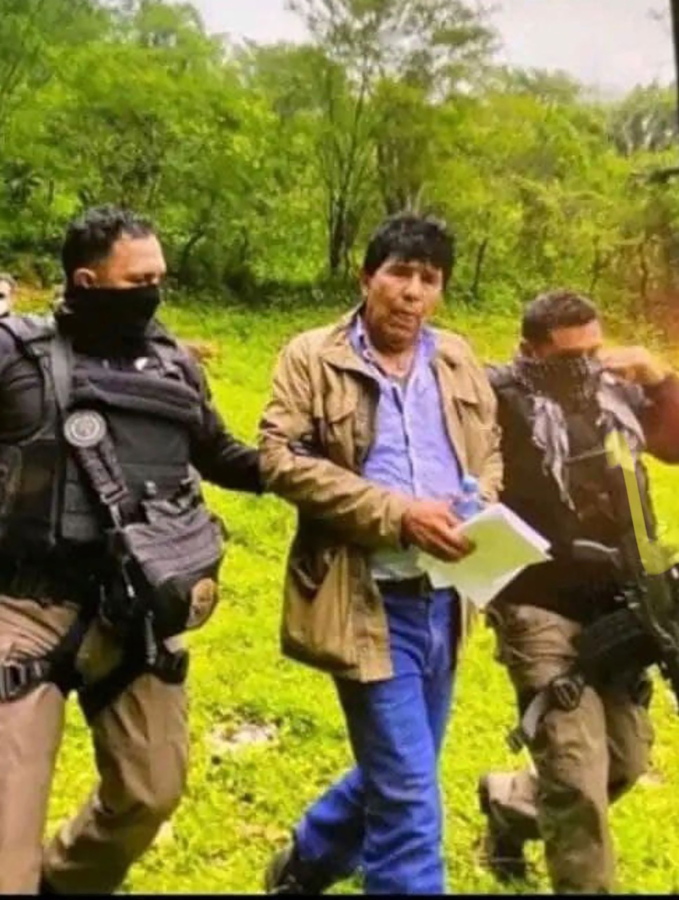MEXICO CITY — The United States’ motivation to find infamous drug lord Rafael Caro Quintero was never in doubt — hence the $20 million reward for information leading to his capture — but there was less certainty about the commitment of Mexican President Andrés Manuel López Obrador, who had made clear his lack of interest in pursuing drug lords.
Yet on Friday, three days after López Obrador and U.S. President Joe Biden met in the White House, the U.S. Drug Enforcement Administration’s most wanted target was in Mexican custody.
The man allegedly responsible for the murder of a DEA agent more than three decades ago was rousted from the undergrowth by a bloodhound as Mexican marines closed in deep in the mountains of his native state of Sinaloa.
The arrest came at a heavy cost: Fourteen Mexican marines died and another was injured when a navy Black Hawk helicopter crashed during the operation. The cause is under investigation.
Mexico’s Attorney General’s Office said in a statement late Friday that Caro Quintero was arrested for extradition to the U.S. and would be held at the maximum security Altiplano prison about 50 miles west of Mexico City.
DEA Administrator Anne Milgram celebrated the capture of a man especially despised by U.S. officials for the torture and murder of DEA agent Enrique “Kiki” Camarena in 1985. “Our incredible DEA team in Mexico worked in partnership with Mexican authorities to capture and arrest Rafael Caro Quintero,” she said in a message to the agency late Friday. “Today’s arrest is the result of years of your blood, sweat, and tears.”
Cooperation between the DEA and Mexico’s marines had led to some of the highest-profile captures during previous administrations, but not under López Obrador, noted security analyst David Saucedo.
“It seems to me that in the private talks between President Joe Biden and Andrés Manuel (López Obrador) they surely agreed to turning over high-profile drug traffickers again, which had been suspended,” Saucedo said.
Both presidents face domestic pressure to do more against drug traffickers. With Caro Quintero’s arrest, “Narcos are being captured again and I believe that clearly it was what was in fact needed,” Saucedo said.
U.S. Ambassador to Mexico Ken Salazar said in a statement Saturday that no U.S. personnel participated directly in the tactical operation that led to the capture of the drug lord. “The apprehension of Caro Quintero was exclusively conducted by the Mexican government.”
Samuel González, who founded the organized crime office in Mexico’s Attorney General’s Office and now is a security analyst, said the capture may not have a major effect on the map of organized crime in Mexico, as Caro Quintero was not as powerful as decades ago, and it might even generate more violence in territories such as Sonora, at the U.S. border.
But he said that to López Obrador’s benefit, the arrest “shows evidence that there’s no protection of capos” by his administration.
González believes Caro Quintero has long been a thorn in the bilateral relationship, but said that “without doubt” his capture was fruit of the recent negotiations in Washington.
U.S. Attorney General Merrick Garland and Salazar expressed gratitude for Mexico’s capture of the man blamed for killing Camarena — a case that brought a low point in U.S.-Mexico relations.
“This achievement is a testament to Mexico’s determination to bring to justice someone who terrorized and destabilized Mexico during his time in the Guadalajara Cartel; and is implicated in the kidnapping, torture and murder of DEA agent Kiki Camarena,” Salazar said in a statement.
Garland said the U.S. government would seek his immediate extradition.




